Understand the full construction legal requirements in Kenya for 2025 — from permits and approvals to NEMA, NCA, and county regulations. This complete transactional guide explains every approval, cost, and legal step you must take before building.
Introduction
Building in Kenya today involves more than bricks and cement — it requires legal compliance from the ground up. Whether constructing a home, office, or industrial property, developers must follow strict construction legal requirements set by both national and county authorities. These laws protect property buyers, uphold building safety, and maintain environmental sustainability. In 2025, counties have integrated online portals for faster applications, but failure to comply can still lead to heavy fines or demolition. Understanding each step before construction begins saves you both time and money.
Understanding Construction Legal Requirements in Kenya
Every construction project in Kenya is governed by a set of legal frameworks that ensure buildings are safe, environmentally responsible, and compliant with zoning standards. These requirements differ slightly by county but follow similar national laws and processes.
The Legal Framework for Construction
Kenya’s construction sector operates under the Physical and Land Use Planning Act (2019), Building Code (2021), and several acts governing environmental, occupational, and safety standards. These laws outline how land can be developed, the standards of construction materials, and safety rules for contractors. In 2025, authorities have tightened enforcement, meaning every project must be approved, supervised by licensed professionals, and completed with an occupancy certificate before use.

Key Agencies Involved
Several agencies regulate construction in Kenya. The National Construction Authority (NCA) registers contractors and inspects projects; County Governments handle building approvals; NEMA manages environmental compliance; WRA oversees developments near water bodies; and BORAQS licenses architects and quantity surveyors. Each institution works in coordination to ensure that projects meet Kenya’s safety, land use, and environmental goals.
Importance of Legal Compliance
Ignoring construction legal requirements can cause major setbacks. Projects built without approval risk demolition, insurance denial, or loss of property value. Proper compliance ensures your investment is protected, allows smooth financing from banks, and provides assurance to buyers and tenants that your structure meets all standards of safety and durability.
Required Permits for Building in Kenya
Every developer must obtain multiple permits before construction starts. These approvals verify that your project aligns with national laws and county planning guidelines.
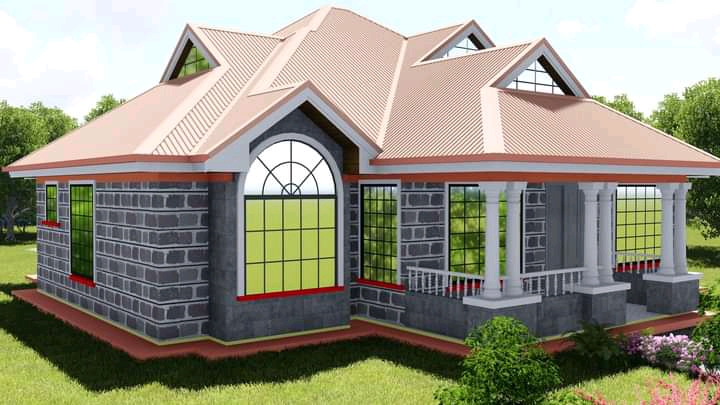
County Government Building Approval
Before breaking ground, a developer must submit architectural and structural plans for county approval. The county reviews the drawings for compliance with zoning rules, sanitation, fire safety, and building standards. In 2025, most counties, including Nairobi and Kiambu, have digitised this process via the eConstruction portal. Approval fees range between KSh 30,000 and KSh 150,000, depending on building size and use, and the process takes approximately 2–4 weeks if all documents are complete.
NCA Project Registration
If your project exceeds KSh 5 million, you must register it with the National Construction Authority. This ensures that only qualified contractors and site supervisors are involved. The registration fee equals 0.5% of the total project cost, and the approval takes around 5–10 working days. NCA officers later conduct site inspections to confirm compliance with safety standards throughout the construction phase.
NEMA Environmental Impact Assessment (EIA)**
For medium and large developments, an Environmental Impact Assessment (EIA) is mandatory before you start building. NEMA assesses the environmental, social, and economic implications of your project. This process usually costs between KSh 100,000 and KSh 300,000, and approval takes 30–45 days. Skipping this step can lead to fines up to KSh 2 million and immediate project suspension.
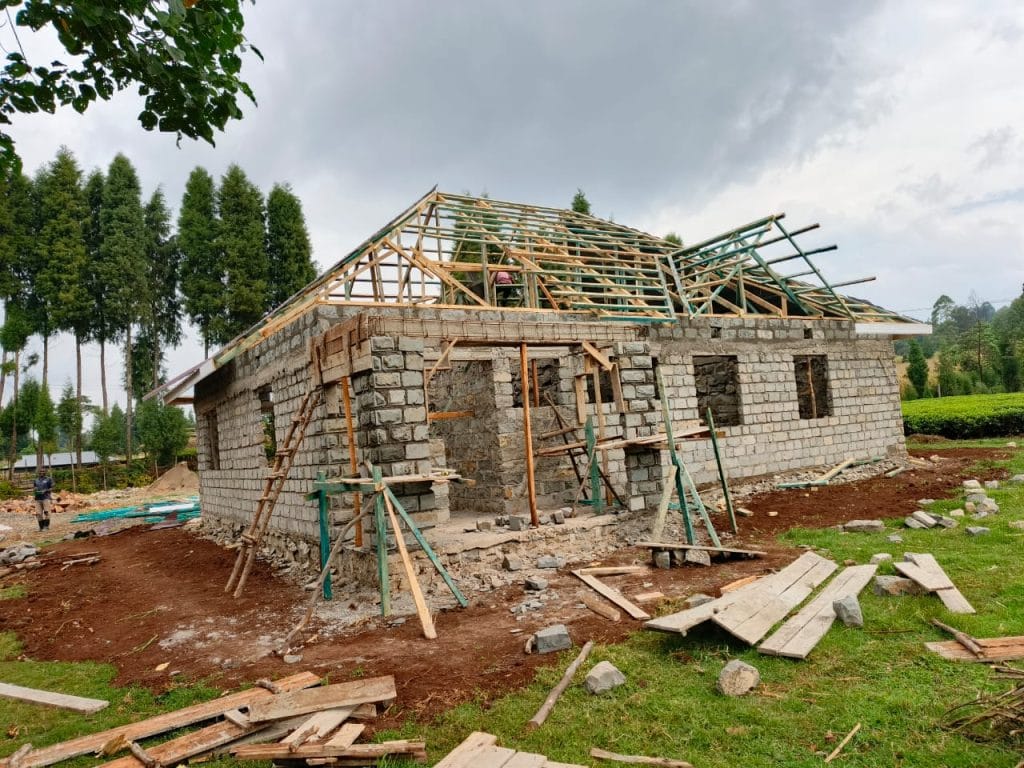
Building Plan Approval Process in Kenya
The approval process ensures that your project is technically sound and legally valid for construction.
Submission of Architectural and Structural Drawings
The process begins with the submission of detailed drawings prepared and signed by professionals registered under BORAQS and EBK. These drawings include floor plans, elevations, electrical layouts, and structural calculations. Counties verify the drawings to ensure they meet set codes and zoning policies. If a project lacks professional stamps, it will be rejected immediately.
Review by County and Relevant Agencies
Once submitted, your documents go through multi-agency review — including departments for health, fire, and physical planning. Officials may request clarifications or site visits before granting approval. In 2025, digital submissions have reduced delays, but incomplete paperwork still causes setbacks. Developers are advised to track their application via the county’s online portal.
Issuance of Building Permit
Once all departments approve, the county issues a building permit valid for two years. Construction must begin within that period or the permit expires. Building without a permit can attract fines exceeding KSh 500,000, and in some cases, county authorities may demolish the illegal structure.
Construction Regulations and Standards in Kenya
Kenya’s building regulations ensure quality, safety, and sustainability in every development.
Structural and Safety Standards
The Building Code 2021 specifies the required materials, design load, and foundation strength depending on location and soil type. Multi-storey buildings must include reinforced concrete frames, fire exits, and emergency access points. These standards protect lives and property, especially in urban developments with high population density.
Electrical, Water, and Waste Regulations
Utility installations must comply with EPRA and WASREB standards. Electric wiring should be done by licensed technicians to avoid fire risks, while plumbing systems must connect to approved water and sewage networks. In 2025, compliance with green building standards is increasingly encouraged to promote energy efficiency and water conservation.
Occupational Safety During Construction
The Occupational Safety and Health Act (OSHA) requires every developer to maintain safe working conditions. Workers must wear helmets, gloves, and harnesses on elevated platforms. Site supervisors are responsible for enforcing safety guidelines and reporting accidents to NCA. Non-compliance attracts penalties and work stoppages until safety conditions are met.

Environmental and Land Use Regulations
Construction laws in Kenya are closely tied to land use and environmental conservation.
Environmental Compliance via NEMA
NEMA ensures that developments do not harm local ecosystems. Every approved project must carry out routine environmental audits during construction and after completion. These audits check for pollution control, waste disposal, and vegetation management. Failure to comply can lead to revocation of your EIA license.
Zoning and Land Use Approvals
Every county has zoning maps that classify land for residential, commercial, or industrial use. Building outside your designated zone without approval can result in project suspension or denial of an occupation certificate. Developers can apply for rezoning, which typically takes 30–60 days, depending on public consultations.
Water and Waste Management Approvals
Projects near rivers or wetlands must get clearance from the Water Resources Authority (WRA) to prevent water contamination or obstruction. Developers are also required to install proper drainage and waste management systems to prevent flooding during rainy seasons.
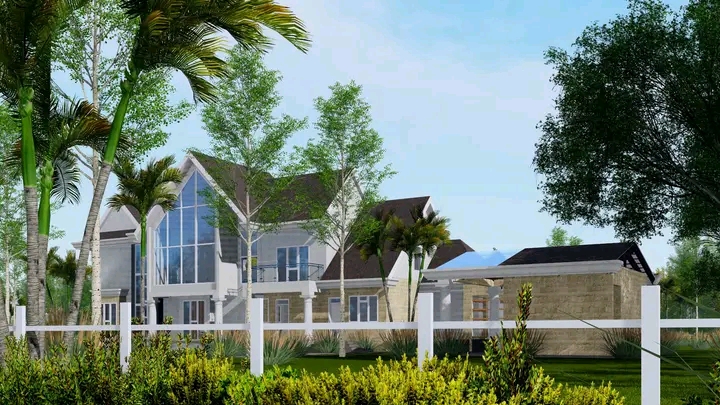
Contractor and Professional Registration Requirements
Professional competence ensures construction quality and accountability.
NCA Contractor Registration
All contractors must register under the National Construction Authority and renew annually. Registration categories (Class 1–8) determine the scale of projects they can undertake. Only registered contractors can apply for building permits and supervise construction sites, making this a legal necessity.
Professional Accreditation
Architects, engineers, and quantity surveyors must hold valid licenses from their regulatory boards such as BORAQS and EBK. This guarantees technical competency and accountability. Counties now verify these licenses digitally before approving building plans.
Importance of Hiring Registered Professionals
Hiring unregistered builders may appear cheaper initially but poses high risks. In the event of collapse or structural failure, you cannot claim insurance or legal protection. Registered professionals ensure adherence to codes, accurate costing, and legal safety throughout construction.
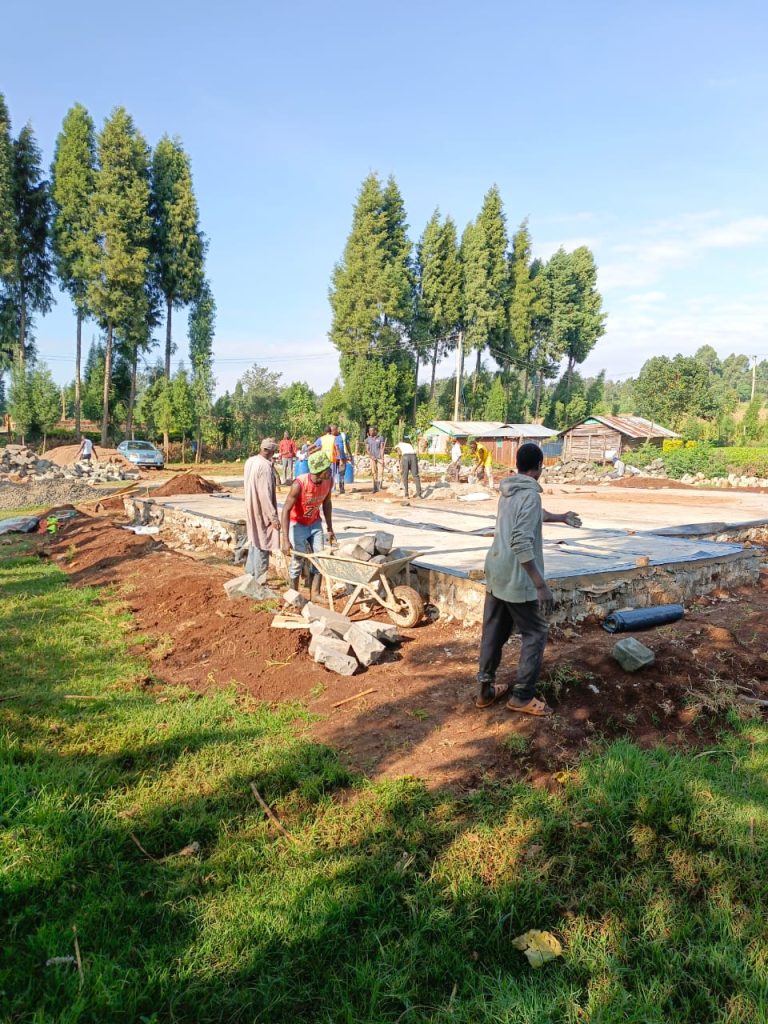
Compliance Costs and Timelines in 2025
Understanding costs and timelines helps you budget effectively and avoid surprises.
County Approvals
County fees depend on project size, location, and type. Residential buildings range between KSh 30,000 and KSh 150,000, while commercial approvals can exceed KSh 200,000. Additional costs apply for fire and sanitation reviews, which are mandatory in 2025 under new building health regulations.
NEMA and NCA Fees
The NEMA license fee varies from KSh 100,000 to KSh 300,000, depending on the environmental impact. NCA registration costs around 0.5% of total project cost. Payments are made online via official portals to improve transparency and speed up processing.
Total Approval Timeline
In 2025, the combined approval timeline—covering design submission, EIA, NCA, and county approvals—ranges between 45 to 90 days. Timelines vary based on project complexity and how quickly you respond to feedback requests from authorities.
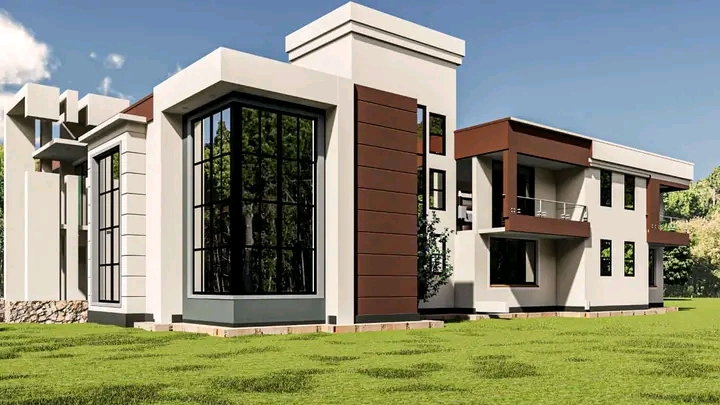
Common Legal Pitfalls to Avoid
Even experienced developers can fall into legal traps that stall their projects.
Starting Construction Without Permits
Some developers rush into construction without waiting for permits, hoping to save time. Counties treat this as a serious offense and can impose fines or order demolition. Always begin construction only after receiving your official approval letters.
Using Unregistered Contractors
Unregistered contractors lack the technical capacity and legal standing to manage large projects. Hiring them can lead to poor workmanship, accidents, and insurance complications. NCA inspectors conduct surprise visits, and non-compliance can halt the project instantly.
Ignoring Environmental Rules
Failing to obtain a NEMA license or mismanaging waste can attract fines up to KSh 2 million. Projects that destroy natural vegetation or block waterways face legal action and reputational damage. Compliance with environmental laws protects both your investment and the community.
Conclusion
Meeting the construction legal requirements in Kenya is the foundation of any legitimate project. In 2025, with advanced digital systems and stricter enforcement, developers must follow every step carefully — from land ownership verification to NCA, NEMA, and county approvals. Legal compliance ensures safety, protects investments, and adds long-term value to property. Always engage registered professionals, maintain accurate records, and use approved materials to build confidently and legally.



